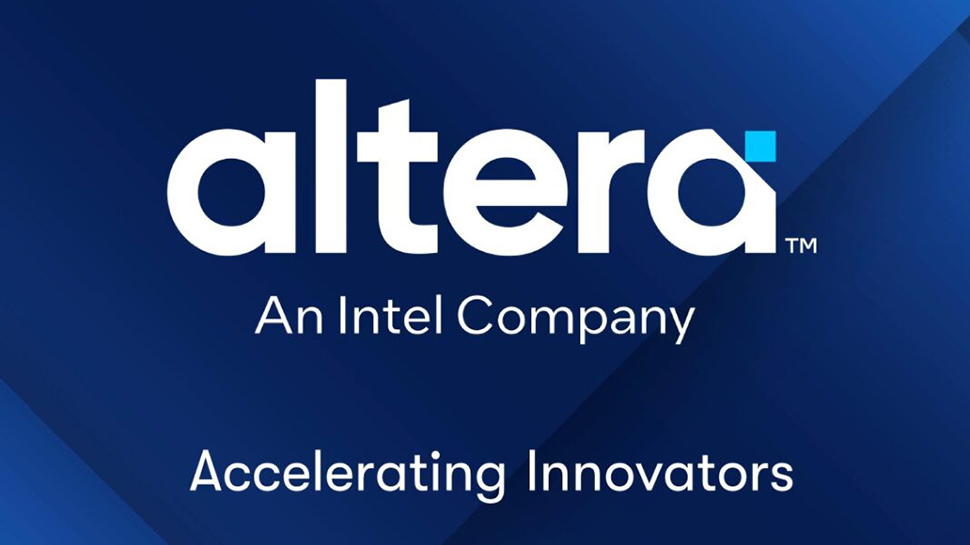'Awesome Branding Move': Intel recycles Altera brand for its PSG group — and it may well have been decided over a dinner in 2023
Intel believes Altera will fare better as an independent entity

Sign up for breaking news, reviews, opinion, top tech deals, and more.
You are now subscribed
Your newsletter sign-up was successful
In an interesting branding move, Intel has renamed its Programmable Solutions Group “Altera,”, and reestablished it as an independent company.
Intel's acquisition of Altera in 2015 for $16.7 billion was one of the tech industry's largest deals at the time. Now, the newly independent Altera, led by CEO Sandra Rivera and COO Shannon Poulin, aims to expand its product lineup and assert its presence in the competitive field-programmable gate array (FPGA) market.
So how did Intel come up with this new name? According to Serve The Home’s Patrick Kennedy, who describes it as an 'Awesome Branding Move', “At a dinner last year, Sandra Rivera, the new head of Altera, asked what it should be called. I said, given the lifespan of the products and the fact that a considerable number of its FPGAs still say Altera, it should just be called Altera again. I am reasonably certain I had zero influence on the process, but it seems like Intel followed a similar logic. Many folks in the industry still call Intel’s FPGA business Altera and AMD’s FPGA business Xilinx since both companies had positive brand values.”
Greater independence
While Intel's 2015 merger with Altera broadened its reach significantly, especially in the data center sector, Intel now believes that Altera would fare better as an independent entity.
Rivera said, "As customers deal with increasingly complex technological challenges and work to differentiate themselves from their competitors and accelerate time to value, we have an opportunity to reinvigorate the FPGA market."
Altera's FPGAs are versatile tools, capable of adapting to rapidly evolving standards and technologies without the need for expensive application-specific integrated circuits (ASICs). They are used across a wide array of sectors, from traditional areas like communications and data centers, to emerging fields such as AI.
The separation provides Altera with greater independence, and allows it the freedom to utilize other foundries more frequently than when it was part of Intel, although it will still use Intel Foundry for the manufacturer of chips on a contract basis. As Tom’s Hardware reports, this arrangement ensures Altera's ability to offer its customers FPGAs produced on competitive nodes, along with supply predictability.
Sign up to the TechRadar Pro newsletter to get all the top news, opinion, features and guidance your business needs to succeed!
More from TechRadar Pro

Wayne Williams is a freelancer writing news for TechRadar Pro. He has been writing about computers, technology, and the web for 30 years. In that time he wrote for most of the UK’s PC magazines, and launched, edited and published a number of them too.